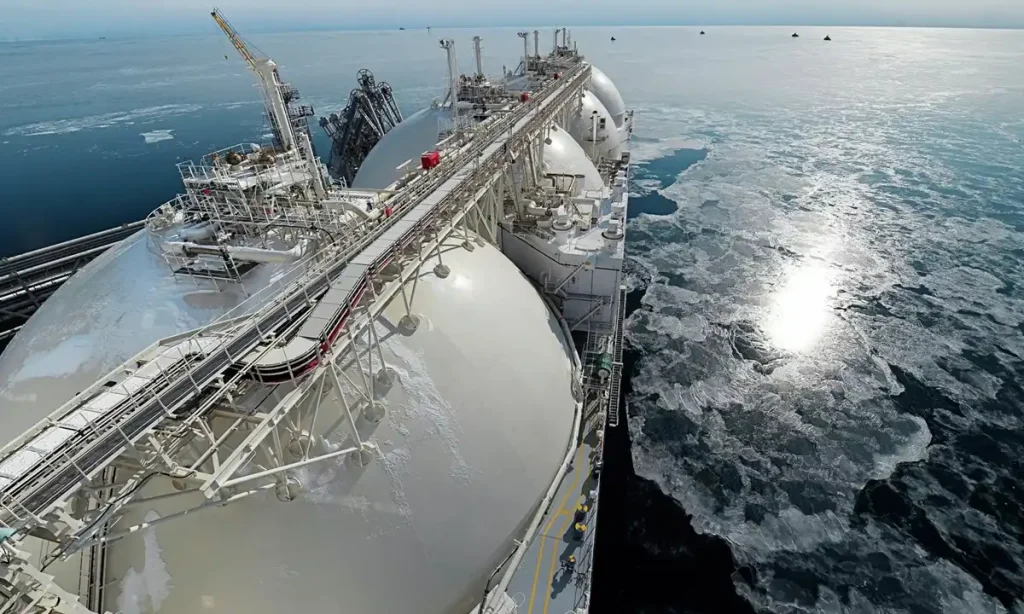The European Union unleashed its 19th sanctions package against Russia on October 23, 2025, delivering a crushing blow to Moscow’s war machine.
Banning Russian liquefied natural gas (LNG) and targeting banks, crypto exchanges, and shadowy oil tankers, the EU aims to starve Vladimir Putin’s invasion of Ukraine.
EU foreign policy chief Kaja Kallas called it a “game-changer” to curb Russia’s aggression. This high-stakes move has the world riveted, as Europe tightens the screws.
It’s not just sanctions it’s a daring push to shift the Ukraine war’s momentum.
LNG Ban Takes Center Stage
The EU’s LNG ban, fast-tracked to hit short-term contracts in six months and long-term ones by January 2027, slashes Russia’s energy revenue a year earlier than planned.
Pipeline gas and crude oil are spared, but the ban still bites deep into Moscow’s war chest. Kallas, posting on social media, said the measures make it “tougher for Putin to fund his war.” The 27-nation bloc, united after Slovakia lifted its veto, is flexing its economic muscle.
This isn’t just policy it’s a strategic chokehold on Russia’s energy dominance.
Targeting the Shadow Fleet
The sanctions blacklist 117 more vessels in Russia’s “shadow fleet” aging tankers dodging global rules to ship oil. False-flag companies registering these ships face bans, alongside five banks in Kyrgyzstan and Tajikistan linked to Moscow’s finances.
The EU also restricted Russian diplomats’ movements, citing espionage risks, and banned transactions with oil giants Rosneft and Gazpromneft. Access to EU space and AI services was cut off, tightening the noose.
These steps aim to dismantle Russia’s covert networks fueling its war effort.
Human Rights in Focus
The package targets 11 individuals and entities tied to trafficking Ukrainian children, bringing the total to 102. A Russian academic teaching sanctions evasion and a Mordovia prison medic, linked to “inhumane” treatment of inmates, were also hit.
The EU expanded its criteria to catch more culprits in these crimes, signaling zero tolerance for human rights abuses. These measures blend economic pressure with moral accountability, striking at Russia’s core.
The sanctions send a clear message: no one escapes justice, from banks to prison guards.
Global Ripples
This bold package, adopted after heated talks, shakes global markets. Nigeria, with its oil-driven economy, feels the tremors as Russia’s energy exports wobble. The EU’s move aligns with U.S. sanctions on Rosneft, creating a transatlantic front against Putin.
Investment bans in Russian economic zones and new port-listing rules signal more pain ahead for Moscow’s allies. The world watches as Europe’s resolve hardens.
Will these sanctions force Russia to rethink its war, or spark retaliation? The stakes are sky-high.
A Turning Point?
The EU’s 19th package is a thunderbolt, targeting Russia’s war funds and human rights abuses. With LNG bans, shadow fleet crackdowns, and diplomat curbs, Europe is playing hardball. Kallas called it a “signal to Moscow” that aggression won’t go unanswered.
As Ukraine battles on, this package could shift the conflict’s tide or provoke a fierce response. Nigeria’s news scene, alongside global observers, is glued to this unfolding drama.
RELATED LINKS: Nigeria’s House Probes $4.6B Health Aid Amid HIV/AIDS Crisis




















